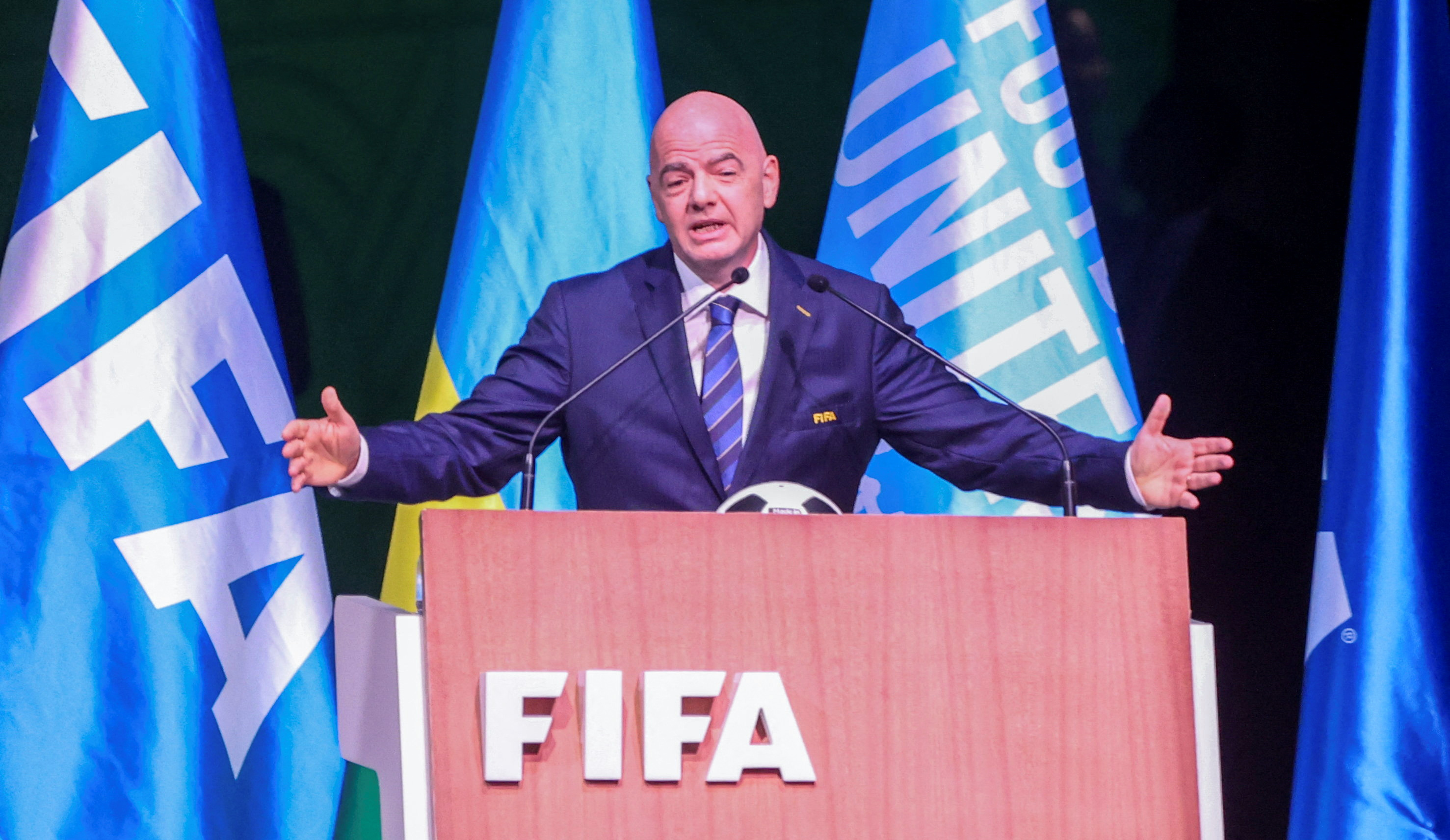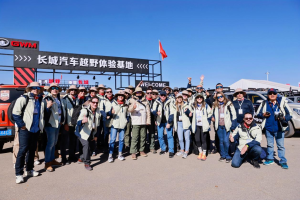The 52-year-old Swiss lawyer, who succeeded the disgraced Sepp Blatter in 2016, was waved in for a third term by acclamation, just as he was four years ago, by delegates from the 211-member federations.
Gianni Infantino has been re-elected as the president of FIFA for a second term after standing unopposed during the 73rd Congress in Kigali on Thursday.

Infantino’s re-election was a formality as he stood unopposed, but he is not universally popular among member associations for pushing for a failed plan to play the World Cup every two years.
The 52-year-old Swiss lawyer, who succeeded the disgraced Sepp Blatter in 2016, was waved in for a third term by acclamation, just as he was four years ago, by delegates from the 211-member federations.
“I love you all,” Infantino told delegates in the Rwandan capital, where the voting system did not register the number of dissident voices.
FIFA statutes currently limit a president to a maximum of three four-year terms. However, Infantino has already prepared the ground to stay until 2031, declaring in December that his first three years at the helm did not count as a full term.
“It is an incredible honour, privilege and a great responsibility,” Infantino said, adding; “I promise to continue serving FIFA and football around the world.”
Infantino confirmed that FIFA’s income hit record levels in the last cycle from 2019-22, but promised to substantially raise this again on the back of expanded men’s and women’s World Cup tournaments and the introduction of a 32-team Club World Cup.
“Revenues rose to a record $7.5 billion (to 2022) in a period that was hit by COVID-19. When I arrived, FIFA reserves stood at around $1 billion; today, they are at almost $4 billion,” Infantino said.
“We promise new record revenues for the next cycle of $11 billion, and the new Club World Cup is not included in that figure so it could increase by a couple of billion (more).”
Infantino also said that FIFA would continue to review the transfer system to “improve transparency” and suggested the organisation might discuss a salary cap.
“We must improve our regulations and the FIFA statutes. We will continue to evolve our sound governance principles and look at the transfer system, and maybe have a discussion to improve transparency of transfer fees and salaries.
“It might be necessary to introduce a cap. We have to think about how we can do that. We will look at it with all stakeholders and see what we can do.”
Infantino’s term as FIFA President has not been without controversy, especially during the 2022 World Cup in Qatar, where the host’s treatment of migrant workers and human rights record came under scrutiny.
However, the Swiss administrator in defence accused Western critics of the decision to award the tournament to the Gulf state of “hypocrisy” and “double standards.”
Over the past couple of days, FIFA has introduced several changes to its major tournaments, which has already seen plans to expand the 2026 FIFA World Cup to 48 teams and a 32-team 2025 Club World Cup already approved by the FIFA Council.
The upcoming Women’s World Cup in Australia and New Zealand will feature 32 teams, up from 24 at the previous edition, fulfilling Infantino’s promise to make those tournaments bigger.
Infantino’s desire to make football “truly global” has also seen the distribution of funds evenly to the likes of Trinidad and Tobago and Papua New Guinea, just as Brazil receives.
This ensures that smaller countries have an equal say in the congress as larger, more powerful nations.




